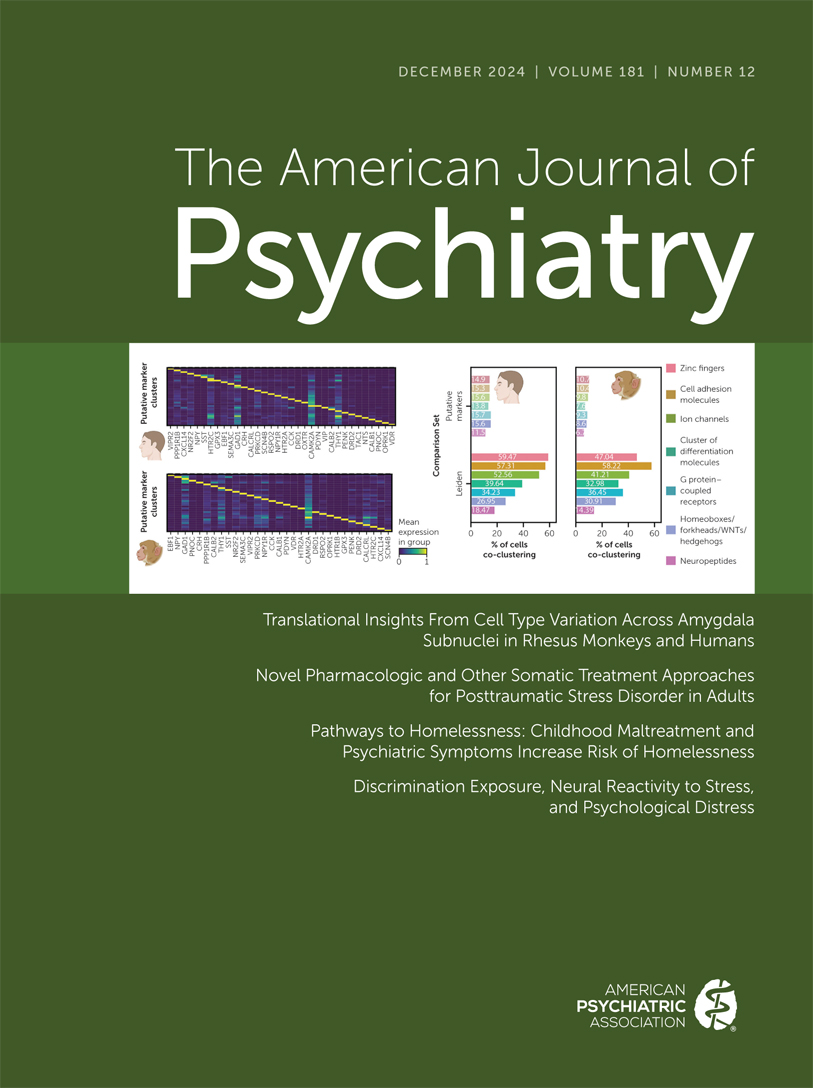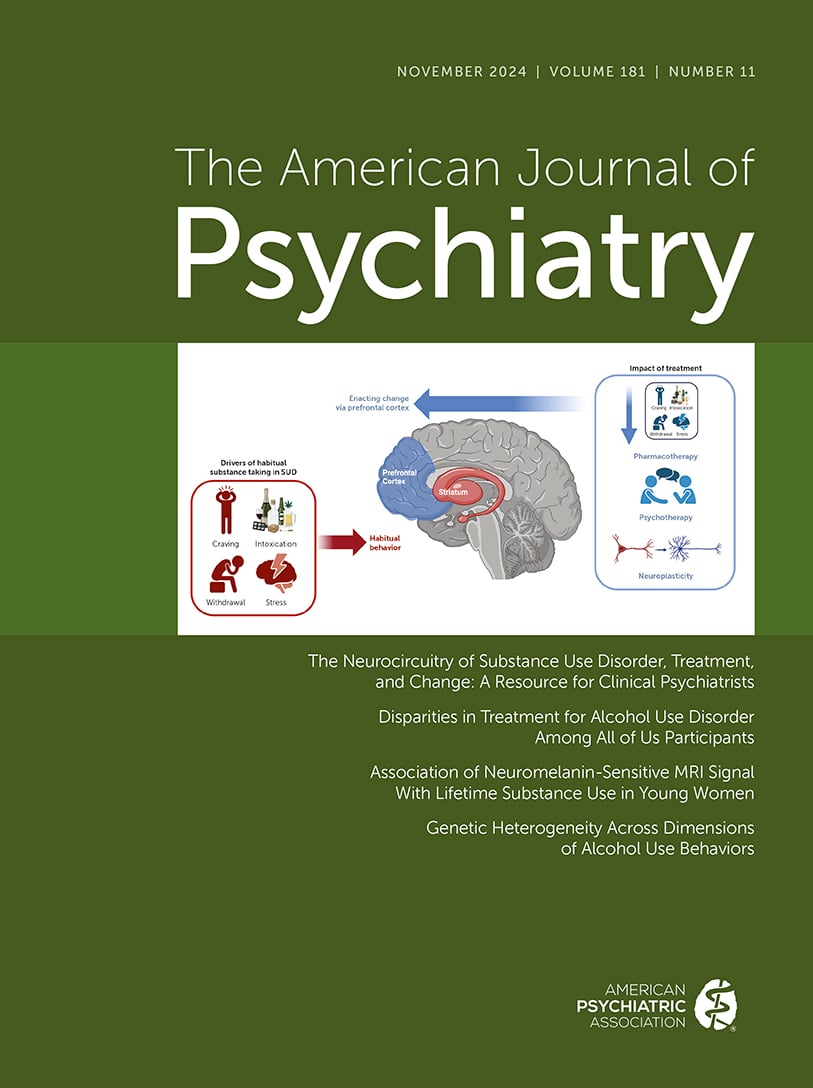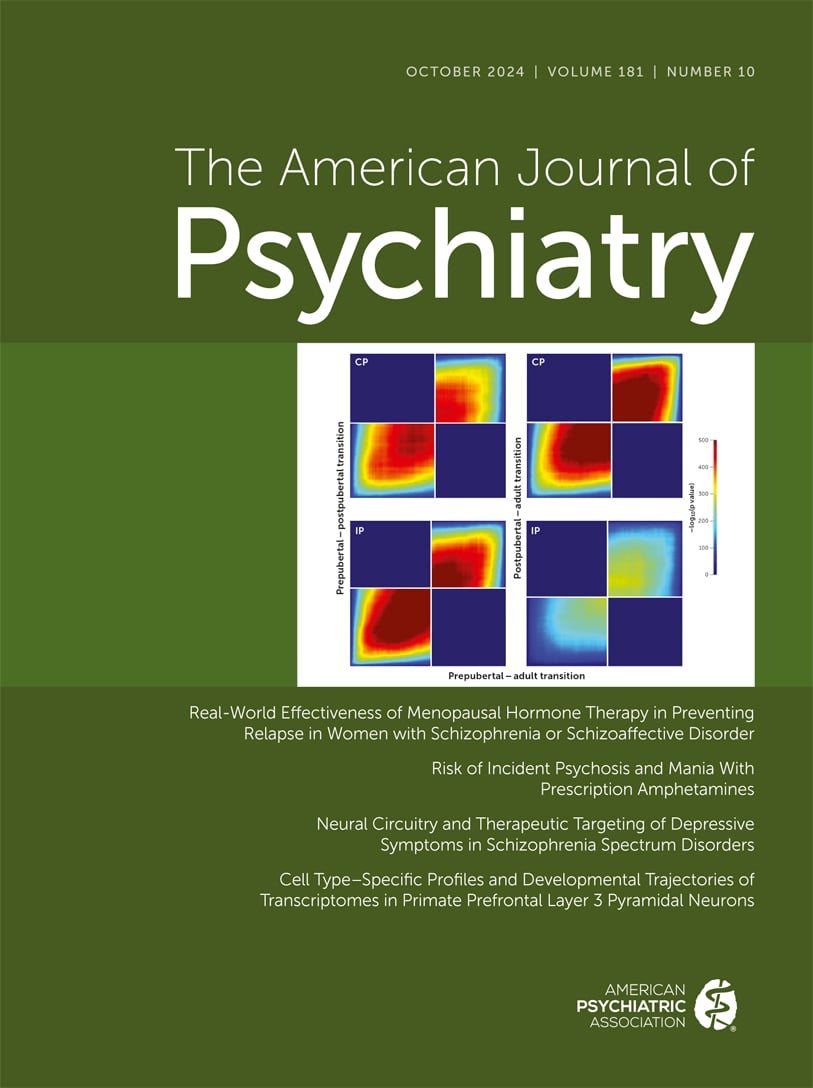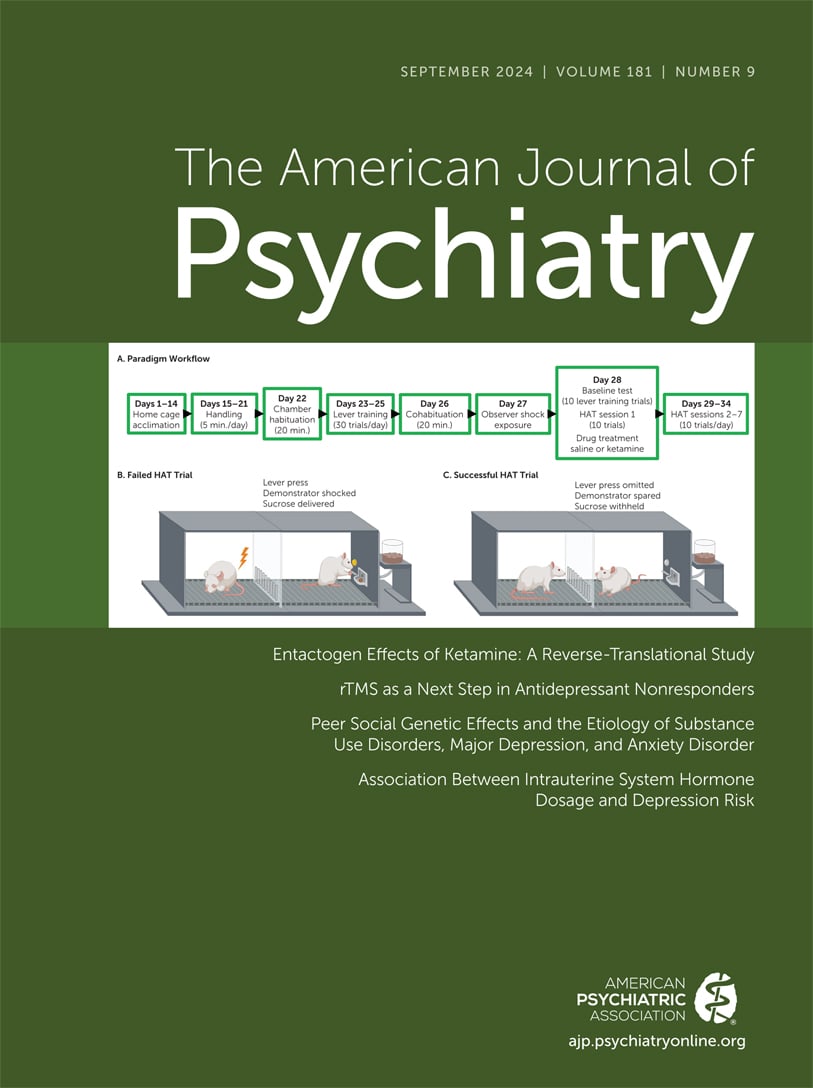American Journal of Psychiatry
- Volume 167
- Number 6
- June 2010
In This Issue
Editorial
Introspection
Treatment in Psychiatry
Publication date: 01 June 2010
Pages630–639Abstract Alcoholism remains a serious cause of morbidity and mortality despite progress through neurobiological research in identifying new pharmacological strategies for its treatment. Drugs that affect neural pathways that modulate the activity of the ...
https://doi.org/10.1176/appi.ajp.2010.08101500Review and Overview
Publication date: 01 June 2010
Pages640–647Abstract In this article, the authors present evidence regarding a dissociative subtype of PTSD, with clinical and neurobiological features that can be distinguished from nondissociative PTSD. The dissociative subtype is characterized by overmodulation of ...
https://doi.org/10.1176/appi.ajp.2009.09081168Publication date: 01 June 2010
Pages648–662Abstract Exposure to traumatic events that produce extreme fear and horror is all too common in both military and civilian populations, but not all individuals develop posttraumatic stress disorder (PTSD) as a result of the exposure. What mediates risk and ...
https://doi.org/10.1176/appi.ajp.2009.09071074Article
Publication date: 01 June 2010
Pages663–667Objective The purposes of this study were to determine time to attainment of recovery from borderline personality disorder and to assess the stability of recovery. Method A total of 290 inpatients who met both DSM-III-R and Revised Diagnostic Interview for ...
https://doi.org/10.1176/appi.ajp.2009.09081130Publication date: 01 June 2010
Pages668–675Objective Empirical evidence has only weakly supported antidepressant treatment for patients with co-occurring depression and alcohol dependence. While some studies have demonstrated that antidepressants reduce depressive symptoms in individuals with ...
https://doi.org/10.1176/appi.ajp.2009.08060852Publication date: 01 June 2010
Pages676–685Objective Prevention of relapse is the crucial task in the maintenance treatment of schizophrenia. The investigators in this study sought to determine the duration of maintenance treatment needed with the initial therapeutic dose, in contrast to a reduced ...
https://doi.org/10.1176/appi.ajp.2009.09030358Publication date: 01 June 2010
Pages686–693Objective Potency equivalents for antipsychotic drugs are required to guide clinical dosing and for designing and interpreting research studies. Available dosing guidelines are limited by the methods and data from which they were generated. Method With a ...
https://doi.org/10.1176/appi.ajp.2009.09060802Publication date: 01 June 2010
Pages694–698Objective Life-threatening danger is assumed to produce, in tandem, increases in both vigilance toward threat and stress-related symptoms, but no data test the validity of this assumption. The authors examined associations, in real time, among imminent ...
https://doi.org/10.1176/appi.ajp.2009.09070956Publication date: 01 June 2010
Pages699–707Objective Suicide rates are high in old age, and the contribution of cognitive risk factors remains poorly understood. Suicide may be viewed as an outcome of an altered decision process. The authors hypothesized that impairment in reward/punishment-based ...
https://doi.org/10.1176/appi.ajp.2009.09030407Publication date: 01 June 2010
Pages708–715Objective The authors assessed gender differences in the proportion of clinical visits spent depressed, manic, or euthymic in patients with bipolar disorder. Method Data were analyzed from 711 patients with bipolar I or II disorder who were followed ...
https://doi.org/10.1176/appi.ajp.2009.09010105Letter to the Editor
Correction
Book Forum
Books Received
APA Official Actions
Past Issues
View Issues Archive
Vol. 181 | No. 12

Vol. 181 | No. 11

Vol. 181 | No. 10
